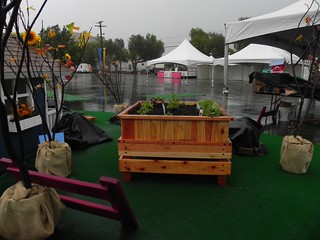An organic garden requires a lot of time and attentive care to thrive. That is where smart organic gardening tips are important. This can help you cultivating healthier and better tasting results from your organic garden. Follow these tips to make your organic garden will soon be flourishing above the rest!
Plant ever-bearing strawberries for your children. Children will be more willing to eat other foods you’ve planted as well.
This also make your flower beds a more aesthetic aspect.
Make sure you work in your garden. Don’t waste thirty minutes looking around for missing tools. Prepare all the tools you need before you go out to work on your garden, and then put them away neatly when finished. Get yourself a tool belt, or a pair of pants with a lot of pockets.
Pine can make for a surprisingly good source of mulch. Cover the surface of the ground with a two-inch layer of the pine needles; as the needles break down, and they will disperse acidity to the soil below as they decompose.
Space is very important when planting an organic garden. You will most likely underestimate how much space plants will need when they are growing. Plan your garden carefully and put an appropriate amount of distance between the seeds.
Laundry Basket
Use a laundry basket when you collect produce from your produce. The laundry basket will make a perfect strainer when you wash your vegetables.
Your compost pile should contain green plants and dry plant materials. Green plant material consists of spent flowers, weeds, leaves, vegetable waste, and leaves. Dried plant material, on the other hand, sawdust, sawdust and shredded paper. Avoid using ashes, charcoal, charcoal and diseased plants in your compost.
As you’ve read, you can grow fresher, more nutritious produce in your organic garden than you can get from other sources. It does take some effort and not a little patience. In the end, though, it is a rewarding and healthy hobby that can offer you benefits that last a lifetime.

